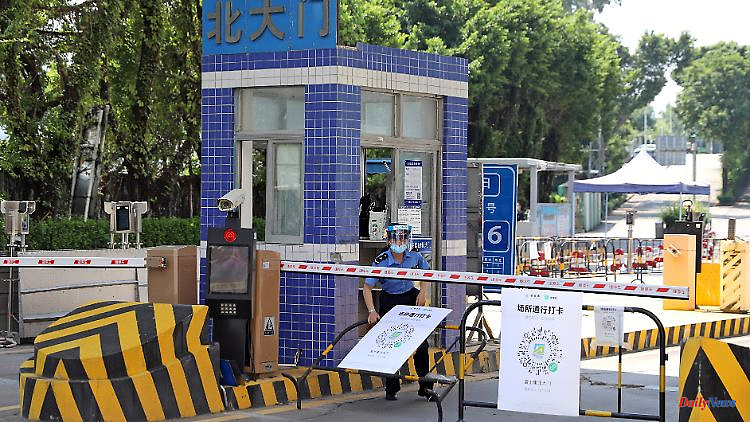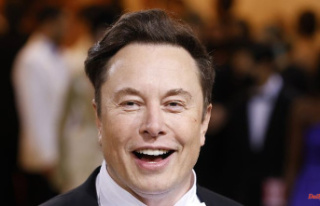The world's largest iPhone factory in central China is in a state of emergency. Due to a corona outbreak, the workers are no longer allowed to leave the premises. Insiders report calls for help on the Internet. Apparently it's not just food that's missing. Around 300,000 people work in the factory.
The situation in the world's largest iPhone factory in Zhengzhou could be more dramatic than Apple's supplier Foxconn has so far admitted. Due to a corona outbreak and Beijing's zero-Covid strategy, employees have not been allowed to leave the factory premises for almost three weeks. According to information from the "Financial Times" (FT), workers are trying to keep in touch with the outside world via social media.
As the newspaper writes, citing insiders, videos circulated on the Internet for a short time in which they wanted to draw attention to their difficult situation in quarantine. Apparently they urgently need food and medicine. In the plant itself, people should not be regularly provided with food, it is said. The videos, which went viral, have since been deleted by Chinese authorities.
A total of 300,000 employees work in the plant in central China, which is important for Apple. It is not yet clear how many have been infected. According to FT information, tens of thousands of employees are infected with Corona. However, Foxconn describes this information as "completely false". According to the plant operator, only "a small number of employees" were affected, the "impact was controllable" and production remained "relatively stable". Apple has not yet commented on the corona outbreak in Zhengzhou and Foxconn's handling of employees.
According to a factory worker whom the newspaper quotes anonymously, the plant and its campus have been sealed off from the outside world since October 7. The week before, production had come to a standstill due to the public holiday. Around the Chinese holidays, millions of migrant workers traditionally make their way to their home province to visit their families. The brisk travel in these times causes the number of infections to explode again and again.
The FT quoted a Foxconn worker as saying that five days ago he learned that his PCR test was "abnormal". He was therefore asked to go into quarantine in his dormitory in the company dorm. Since then, nobody has taken care of him "or arranged further tests for me". According to him, a total of eight workers share the bedroom.
As the newspaper goes on to write, metal barriers have been erected around the plant. The workers have to undergo Covid tests every day and are only allowed to stay on the factory floor and in their dormitories. Foxconn has promised additional salaries and free meals to employees who report for duty in the next two weeks, citing employees included.
China still has a very strict zero-Covid policy with mass testing after the first positive cases and curfews. Zhengzhou, where the Foxconn factory is located, is the capital of Henan Province. In total, more than 10 million people live here. The entire province is already in partial lockdown after dozens of Covid cases were reported earlier this month.
The list of major Chinese cities affected by corona restrictions has recently become longer and longer: the analysis company Capital Economics counted more than 40 cities that account for a third of Chinese economic output. Lockdowns and plant closures due to small outbreaks of the corona virus are weighing heavily on the Chinese economy. President Xi Jinping nevertheless wants to stick to the current corona policy, as he recently clarified.
Production disruptions in China once again underscore investors' concerns about supply chain risk -- particularly at Apple, given that more than 95 percent of iPhones are made in China. "If Apple doesn't come up with a plan B, it could be an absolutely historic mistake," the FT quotes the dean of the IE School of Global and Public Affairs in Madrid, Manuel Muñiz.












